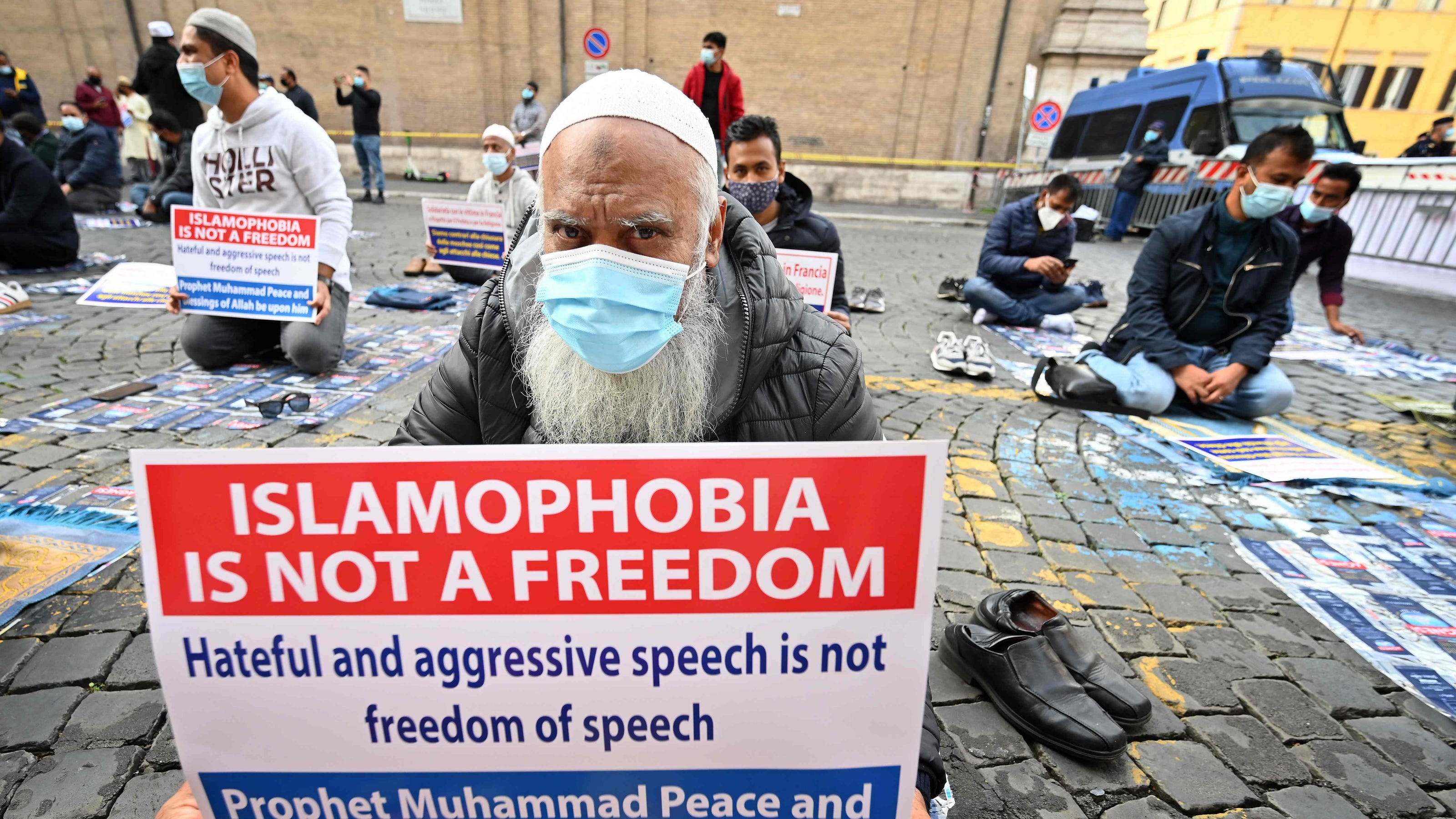
"It's time for us to move," said Moreira, 58, an investigative journalist and documentarian who has reported from some of the world's most dangerous conflict zones. He spoke to USA TODAY on the day France saw its third terrorist attack since September, when a trial began for alleged accomplices in the 2015 Charlie Hebdo killings. .
Five years ago, the satirical magazine Charlie Hebdo published cartoons depicting the Prophet Mohammad, which many Muslims find offensive.
They come also as Macron has sought to crack down on extremism in France following a spate of terrorist attacks in recent years that have, according to Macron, partially resulted from a "counter society" that seeks "Islamist separatism" at odds with France's republican values. .
He has also staunchly defended Charlie Hebdo’s right to publish the caricatures, leading to protests in several Muslim countries and sending relations between Turkey and France to a new low after Turkey’s President Recep Tayyip Erdoğan last week accused Macron of Islamophobia over the caricatures and even questioned his mental health.
But Dalia Mogahed, a former advisor on faith to President Obama, and now research director of the Institute for Social Policy and Understanding, a think tank that focuses on issues that affect American Muslims, said Macron and the French establishment more broadly have been wrong to portray the controversy over the cartoons as one that pits freedom of speech against blasphemy.
She said the cartoons need to be understood against the background of rising Islamophobia in France across the political spectrum. .
30, 2020, in central Rome called against Islamophobia and for boycotting France amid anger in the Islamic world over France's defense of the right to publish cartoons seen as offensive to Islam
Mogahed said believing the cartoons are offensive should not in any way be understood as justification for any form of violence, and indeed governments and Muslim leaders and organizations across France and the world have condemned the attacks
However, she said it it was "a myth" and "completely disingenuous" of France to project the idea that "it is all open and anyone can say anything they want to anyone." She noted, for example, that Holocaust denial is criminalized in France and that wearing the Muslim headscarf known as a hijab, a practice some Muslims view as a form of self-expression, is banned in French schools, while burqas, niqabs and other full-face coverings are prohibited in all public spaces
Free expression is "not being applied consistently" in France she said, adding that in his support for the cartoons to be published Macron is effectively "imposing a different kind of state religion" that she referred to as as "French Republic nationalism."Â
Muhammad Fraser-Rahim, an executive director for North America at Quilliam, a London-based think tank that focuses on countering extremism, said "Muslim circles" in France, Belgium and other Western European nations have been slow to recognize the need for a far more public and rigorous debate about how it's possible to be "both French and Muslim."Â
He said there's no question that Muslims in France are discriminated against and that mental health and societal factors, such as few economic opportunities, are often downplayed or overlooked when trying to understand how radicalization happens
Fraser-Rahim noted it was "absolutely despicable" that Malaysia’s former leader Mahathir Mohamad said in a blog post circulated on social media directly after the recent Nice attack that Muslims had "a right to be angry and kill millions of French people for the massacres of the past." Mohamad later claimed his words were "misrepresented" and he clarified that while he did not approve of the attack, freedom of expression does not include "insulting other people," referring to the cartoons
Guitta said he foresaw a scenario where over the next few weeks demonstrators in Arab Gulf states, in Pakistan, in Turkey and across Muslim areas of South East Asia took to the streets in violent protest, as happened when the Danish cartoons were first published, and before that when Rushdie's book was slapped with a fatwa by Iran
Guitta also said he was worried about what the ongoing public debate in France about the attacks could mean for far right-wing elements in France, who often capitalize politically whenever assaults claimed in the name of Islam are made
But Guitta said he was ultimately "less pessimistic" about the situation because unlike in prior years when France has been rocked by terrorism, all three assailants of the recent assaults – the one in Nice, two in Paris – were perpetrated by foreigners.Â